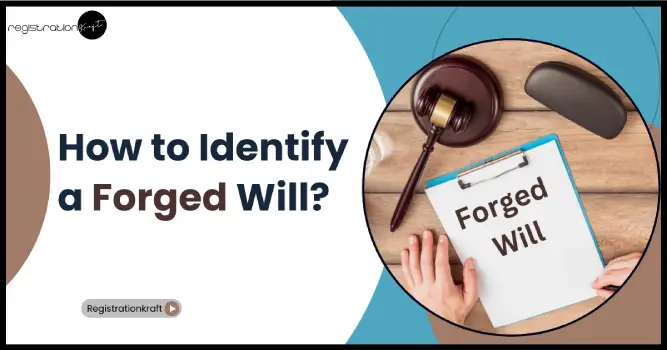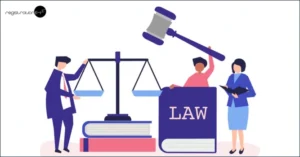In today’s time, many people have become selfish and greedy. Because of this, they create fake documents to claim immovable and movable assets which they don’t actually have a legal right over. A common example is a forged will that unfairly gives most of the property to one person. If you believe a will is fake, you can go to court to have the forger punished under the Bharatiya Nyaya Sanhita (BNS).
If a will was recently revealed in your family after the testator’s demise and you have doubts about its authenticity, this blog article titled “How to Identify a Forged Will?” could be helpful for you.
What is considered a ‘forged will’?
A forged will, or simply known as a fake will, is a will which is made without the testator’s consent and knowledge. When a genuine will is created, all the assets are distributed according to the testator’s wish after their demise.
A forged will may contain a fake signature made by someone else or appear strange, such as benefiting individuals who are not family members.
How to determine whether a will is forged?
If a will is fake, there’ll most likely be some signs to prove so. Generally, a will might be forged in the following cases:
- The signature on the will is written in handwriting that is different from the testator’s.
- The will provides a major portion of assets to certain people which would be considered out of character for the testator to do so.
- The provisions in the latest will majorly differ from those in an earlier valid will.
- There was no previous knowledge of the will’s existence and it was found unexpectedly after the demise of the testator.
- The witnesses to the will are being uncooperative and refuse to answer questions related to the will’s execution, or are otherwise unidentifiable.
Also read: What is Criminal Procedure Code New Name?
How to challenge a forged will?
If you feel like a will has been forged and have evidence to prove the forgery, then you can challenge such a will. The burden of proof lies on the person challenging the validity of the will.
Generally, wills which are registered at the sub-registrar’s office in the jurisdiction of the testator’s residence are presumed to be authentic. Hence, substantial evidence must be provided by the challenger to overcome this presumption. The conditions for challenging a will are outlined in the Indian Succession Act 1925.
Punishment for forgery of a will
According to Section 336 of BNS Act, “whoever commits forgery, intending that the document or electronic record forged shall harm the reputation of any party, or knowing that it is likely to be used for that purpose, shall be punished with imprisonment of either description for a term which may extend to three years, and shall also be liable to fine.”
How are assets distributed if a court finds that a will is fake?
If the will is found to be forged by the court, then the assets will be distributed on the basis of the previous valid will’s term. However, if there is no previous valid will, then the assets will be distributed as per the provisions of the Indian Succession Act 1925 according to which the estate will be distributed to the closest living relatives of the testator, including the forger if he is one such relative.
Conclusion
Many people create fake wills so they can enjoy the property, jewelry and other assets of the deceased. However, such greedy people are often found to be guilty and punished by the court. If you suspect a will is fake, then consult with a lawyer and discuss what can be done. A lawyer can help you understand what steps can be taken to challenge the will or prove it is fake. They know the law very well and can give you good advice on how you can protect your legal rights and get what you are legally entitled to get!
Related Post: What is the Transfer Of Property Act 1882






